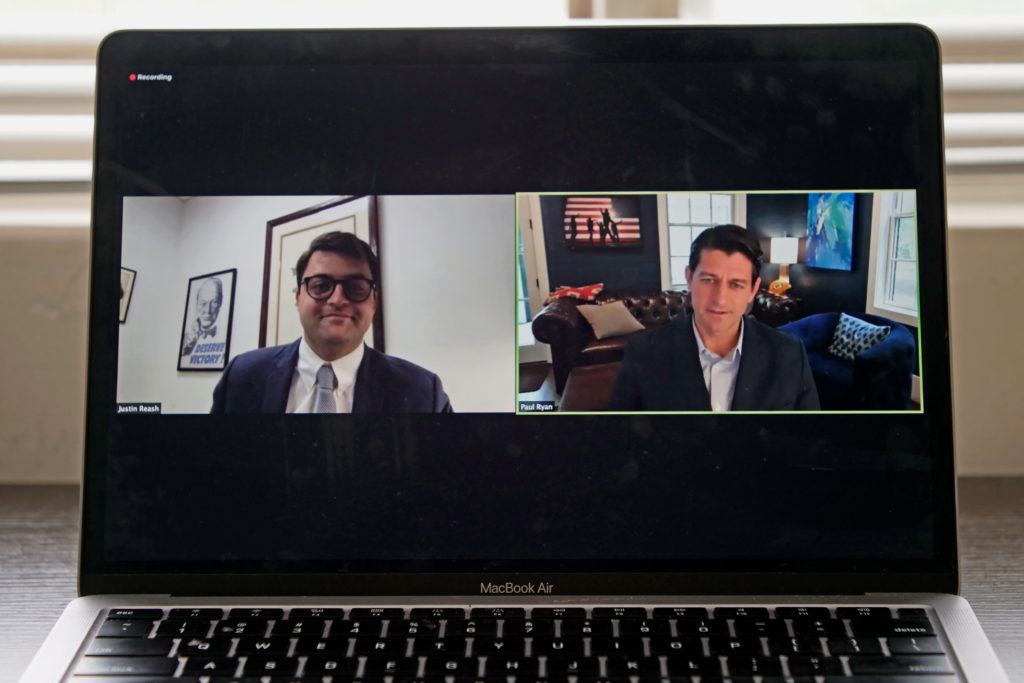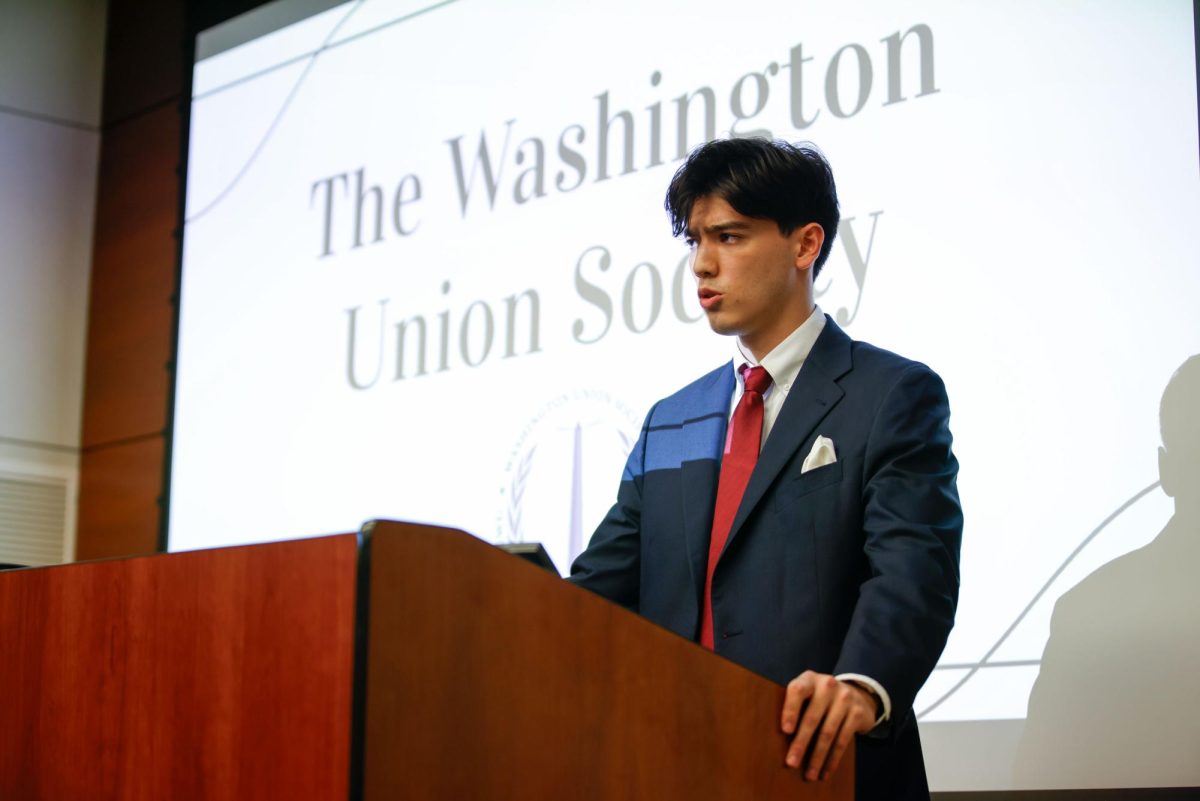Former Speaker of the House of Representatives Paul Ryan discussed ideologies that influenced his political career at a virtual event Thursday.
The Graduate School of Political Management and the National Churchill Leadership Center hosted the interview with Ryan, who spoke about his experience serving in Congress and his foundation that aims to increase economic opportunity in the United States. Justin Reash, the program director of National Churchill Leadership Center, moderated the event as part of the Churchill Leadership Series.
Ryan said he initially didn’t plan to become a member of Congress or run for office at a young age and was more drawn to creating ideas and shaping economic policies. He said while he could brainstorm ideas as a legislative staffer, he wanted to see those ideas get carried over into Congress and actually implemented, which motivated him to become a policymaker.
“There was a year or two moment where I made a conclusion that I would rather be a policymaker than just writing things and hoping policymakers would read them one day,” he said.
Ryan said the leadership style of Winston Churchill, the prime minister of the United Kingdom during World War II, influenced him to strongly believe in knowing his principles, understanding his philosophies and being able to persuade people in debates.
Ryan added that Churchill’s legacy inspired him to take on a level-headed temperament and positive outlook of the world. He said this led him to focus on how to advance democratic capitalism and prepare people and policymakers to avert economic conflicts in the country.
“That lesson in Churchill is what got me focused on the things I got focused on in Congress,” Ryan said.
He said his eight terms of experience in Congress allowed him to build trust with Republicans, which helped him lead the body effectively when he took over as speaker of the house.
He said he was transparent about his beliefs and personality and relied on his honest interactions with voters when he ran as speaker within the Republican Party.
“If I tell you who I am and what I think, and I get elected, then I have an obligation or a moral opportunity to work on my policies,” Ryan said.
He said leaders in the country can ensure they fulfill their policy goals by crafting realistically achievable agendas.
“You do it to make good on your promises and hopefully your policies work, and in our case, they did where tax reform and deregulation worked,” he said.
Ryan said he believes in democratic capitalism and upper mobility but is concerned that younger generations are emotionally attached to socialism. He said his foundation, called the American Idea Foundation, seeks to tackle issues like poverty with center-right free-market policies.
He said the foundation is working on testing free-market solutions that can break people out of poverty using data from government poverty programs that measure which programs are efficient at breaking poverty.
“I am more than willing and confident that our principles of personal responsibility, of upper mobility, of free enterprise and incentives work, so I think you can advance these ideas using data and statistics instead of ideology and partisanship,” he said.








